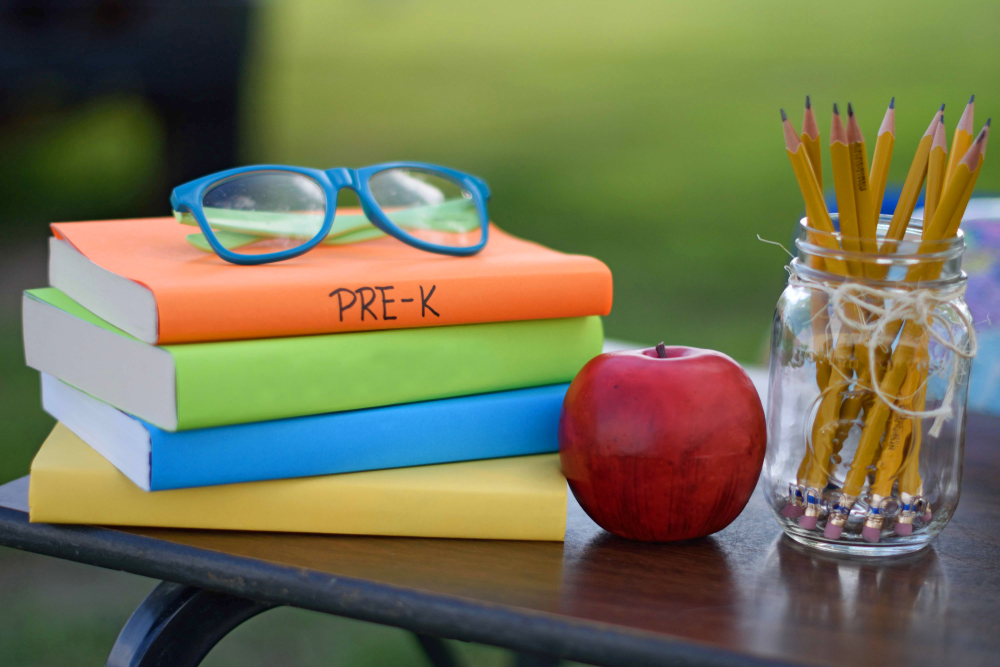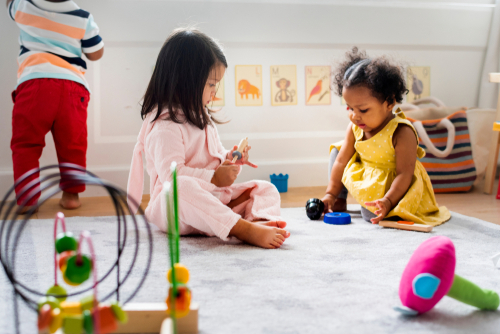New to Greenwood, IN? Top Pre-School Programs and Kid-Friendly Activities for Families
Starting fresh in a new city is always a big step, especially when you’re raising a young family. If you’ve just arrived in Greenwood, IN, you’ll find that this welcoming community has much to offer families with young children. From trusted early education options to a full calendar of engaging activities, the city is built with families in mind. Whether you’re looking for enriching toddler classes, family resources for young children, or fun weekend outings, Greenwood offers both quality and variety for parents and children alike.
Many new families are surprised by how quickly they feel at home in Greenwood. It combines the charm of a smaller town with the amenities of a growing city, and it’s just a short drive from Indianapolis. The local environment supports a child-friendly lifestyle, and parents can easily connect with others going through similar stages of life. This guide will help you discover some of the top preschool options, the best toddler classes, and family community events that Greenwood, Indiana has to offer.
Preschool Programs That Support Growth and Development
One of the first priorities for families with young children is finding a preschool that promotes both academic and personal development. In Greenwood, IN, parents have access to a wide selection of preschools, including those with structured academic settings, play-based models, and blended approaches. Many programs cater to children from ages 3 to 5, offering both half-day and full-day options to accommodate different schedules.
The preschools in Greenwood focus on fostering independence, encouraging curiosity, and preparing children for kindergarten. Parents will find programs that introduce early literacy, simple math concepts, and creative arts. Additionally, social-emotional learning is a core part of many preschool curriculums, helping children build friendships and navigate group settings with confidence.
Preschool programs often include small group sizes to ensure personalized attention and a strong connection between teachers and students. Families can also explore options that support special needs, such as speech development or sensory integration, through early intervention services offered in partnership with school districts or local educational support networks.
Whether your family values a more structured classroom or a child-led environment, Greenwood offers flexibility and diversity in its preschool options, making it easier to find the right fit for your child.
The Best Toddler Classes Greenwood, IN Has to Offer
When it comes to the best toddler classes, Greenwood, IN is full of exciting and enriching experiences for little learners. These classes are not only beneficial for child development, but they also help parents find community and support.
Families can enroll their toddlers in music and movement classes, which combine rhythm, songs, and instrument play to stimulate auditory and physical development. Many local programs include caregiver participation, which strengthens the parent-child bond and helps toddlers feel secure while exploring new environments.
For physically active toddlers, there are structured gym classes that focus on coordination, balance, and early sports skills. These activities promote healthy movement habits and provide a positive outlet for energy. Some programs even offer introductory dance, tumbling, or yoga for toddlers, blending fun with foundational fitness.
If your child enjoys books and storytelling, Greenwood’s public library system hosts regular storytime sessions tailored to toddlers and preschoolers. These events introduce children to language, social interaction, and imaginative play in a calm and welcoming setting.
Greenwood also provides creative arts classes, where toddlers can experiment with painting, sensory bins, and themed crafts. These sessions nurture self-expression, problem-solving, and fine motor skills, all through hands-on fun.
No matter your child’s interests, Greenwood’s wide range of toddler programs allows parents to explore many paths of early enrichment without having to leave the city.
Year-Round Kids Activities in Greenwood, Indiana
One of the perks of living in Greenwood, Indiana is the abundance of kid-friendly activities throughout the year. The city’s recreational spaces, indoor attractions, and seasonal events offer entertainment and enrichment for children of all ages.
Families can enjoy afternoons at the local parks, which often feature modern playgrounds, shaded walking trails, and open green spaces for games or picnics. During warmer months, splash pads and interactive water features provide an easy way to cool off while keeping kids engaged. Parks in Greenwood are well maintained and usually include age-appropriate areas for toddlers and preschoolers.
Indoor activity centers are also available and ideal for rainy or cold days. These facilities often have play structures, imaginative play zones, and climbing equipment that help children develop both motor skills and creativity in a safe, climate-controlled setting.
For those interested in nature and outdoor education, Greenwood offers family-friendly trails and greenways where children can learn about local wildlife and plants. These quiet outings provide a break from screens and a chance for families to connect with nature together.
Greenwood also features several venues for classic family entertainment, such as indoor mini-golf, arcade games, and seasonal pop-up attractions. These places often host special events for younger kids, including themed days or quiet hours tailored for toddlers.
Whatever the season, Greenwood, IN delivers a wide variety of activities that keep kids busy, active, and smiling all year long.
Parenting Support and Family Resources for Young Children
Navigating parenthood is no small feat, especially when you’re new to the area. Fortunately, Greenwood, IN parenting support programs are thoughtfully designed to offer encouragement, information, and assistance for families with young children.
Local health organizations, school systems, and nonprofit agencies collaborate to provide a network of services, from parenting classes to child development screenings. These programs help parents learn more about topics like sleep routines, positive discipline, nutrition, and emotional regulation in early childhood.
For families with infants or toddlers experiencing delays or difficulties, early intervention programs are accessible and often offered at little or no cost. These services may include speech and language therapy, behavioral support, or occupational therapy, all tailored to the unique needs of young children.
First-time parents can also benefit from new parent groups and postpartum support circles, which provide a safe space to share experiences, ask questions, and build friendships. These informal meetups are often hosted in community centers, churches, or local libraries and are a great way to establish your parenting village in Greenwood.
Digital resources are also available, including parenting newsletters, virtual workshops, and social media groups where local parents share tips, referrals, and activity ideas. Whether you’re looking for structured classes or casual social support, Greenwood offers a strong foundation of resources that encourage healthy family growth.
Greenwood, Indiana Family Community Events to Enjoy
In Greenwood, Indiana, family community events play a central role in bringing people together and celebrating the spirit of the town. Throughout the year, families can enjoy a full calendar of events that are inclusive, fun, and budget-friendly.
Spring and summer highlight outdoor activities like family movie nights, community yard sales, and weekly farmers markets. These events often include live music, food vendors, and kids zones with games and crafts. They provide a perfect opportunity for families to spend time together while supporting local businesses.
During autumn, Greenwood hosts a variety of fall-themed festivals, including pumpkin decorating contests, costume parades, and hayrides. These events are usually held in parks or downtown areas, and they offer a blend of sensory activities, seasonal food, and safe trick-or-treat experiences for little ones.
The winter season brings a special kind of charm with tree lighting ceremonies, holiday parades, and indoor craft fairs. Many events include storytelling, winter-themed performances, and chances for children to meet holiday characters. These activities create memorable traditions and help families build a sense of belonging within the community.
Greenwood also organizes educational events and cultural celebrations throughout the year, giving families the chance to learn something new together. From Earth Day festivals to heritage days, these events foster diversity and inclusion in ways that are both fun and meaningful.
Conclusion
Greenwood, IN is more than just a place to live; it’s a city that embraces families with young children and provides them with the tools, opportunities, and experiences to thrive. With top-notch early learning options, enriching toddler classes, and a wide range of family resources for young children, Greenwood sets the stage for a healthy and vibrant childhood.
Kids activities in Greenwood, Indiana are both fun and developmental, while parenting support programs give caregivers the confidence and community they need. As you explore the parks, attend events, and connect with other families, you’ll find that Greenwood offers not just convenience but also connection.
Whether you’re here for a short season or planning to grow roots, Greenwood, Indiana family community events and programs make this city an ideal place for young families to flourish.
Need a Child Educational Center in Greenwood, IN?
Established in 2017, we here at Kids Kingdom Early Learning Center are a child care and learning center located in Greenwood, Indiana. We specialize in providing a variety of services including daily nondenominational Christian education, before care and aftercare services, Paths to QUALITY™ Level 3 provider, On My Way Pre-K Provider, director-led weekly Bible learning time, military discounts, available through NACCRRA, Kindergarten readiness, CCDF provider, and more for children from newborn to 6 years old. As a family-owned and operated business, we value providing Christian education and quality services. Contact us for more information or come visit us today!





 Why Do Toddlers Bite?
Why Do Toddlers Bite?